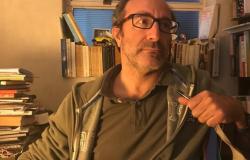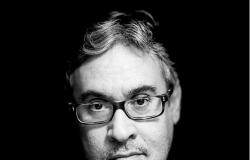Hear
This year marks the 150th anniversary of the writer’s birth. Leopoldo Lugones (1874-1938), pillar of Latin American modernism and Argentine literature, and in his native province, a stamp located in Traslasierra recovered a section of landscape book (1917), “Alas”, where the poet expresses his fervor for the natural environment. In Argentina, Writer’s Day is celebrated on June 13, the date of birth of the author of sentimental lunar.
In At (Ediciones del Callejón, $15,000), under the care of writers César Vargas and Leandro Calle, brings together a series of poems about birds. The chingolo (“He jumps, confident, to the threshold, / And requests permission, / With a concise little cry / Like a pinch of glass), the hornero, the federal, the parrot, the pirincho, the goldfinch (“From his yellow throat, / New wheat from the threshing / Crushes the glass from the trill), the blood-weeper, the owl, the aracucú, the swallow, the cowherd, the partridge and the woodpecker, among many other birds, fly over the pages of this feathered anthology.
Read from the present, Lugonian poems – portraits of birds made in verses of daring rhymes – acquire new meanings. “The section we have chosen finds its reason for being in the poetic quality of the poems, but also in their reception located in a provincial territory devastated by fires and mistreatment of the land.”Vargas and Calle maintain in the prologue. On the other hand, they assure that they do not intend to “make Lugones say what he did not say, but that we receive his work as a legacy, as a memorial that we believe necessary to place next to the challenges of our time.”
In AtLugones, who conceived poetry as a “revenge” against life, reveals instead his rapture at the landscape and the song and habits of the birds, immersed like him in the “ecstasy” and the feeling of glory that provokes the natural environment.
This Thursday, from 1:00 p.m. to 3:00 p.m., to celebrate the Writer’s Day There will be a round of readings on the go and, every half hour during that period, a release of books on the benches of Plaza de Mayo. Organized by the National Commission of Popular Libraries (Conabip) and the Casa Rosada Museum, the proposal – which aims to promote the habit of reading – will be attended by the Secretary of Culture, Leonardo Cifelli; the president of Conabip, Raúl Escandar, and the director of the Casa Rosada Museum, Virginia González.
The event, which is suspended due to rain, will have the collaboration of reading mediators and representatives of the popular libraries “Alberdi”, “Belisario Roldán” and “By the paths of books and solidarity”, located in different neighborhoods of the Buenos aires city. In total, more than six hundred books of children’s literature and history, stories, novels and poetry collections will be released.
At 6 p.m., in the Borges Space of the Miguel Cané Library (Carlos Calvo 4319), which depends on the Buenos Aires Ministry of Culture, researchers Germán Álvarez and Laura Rosatto, directors of the Jorge Luis Borges Documentation Center of the Mariano Moreno National Library, They will talk with Mariana Soba about the literary and personal ties between both writers.
In “A Leopoldo Lugones”, at the beginning of The makerBorges recounts a dream with the author of The strange forces, set in the National Teachers Library (which Lugones directed for twenty-three years until his death). “These reflections leave me at the door of his office,” it reads. I enter; We exchange a few conventional and cordial words and I give him this book. If I’m not mistaken, you didn’t hate me, Lugones, and I would have liked you to like some of my work. This never happened, but this time you turn the pages and read some verse with approval, perhaps because you have recognized your own voice in it, perhaps because poor practice matters less to you than sound theory.
The wild dove
Under the dense carving whose rest
The soul promises eternal solitude,
Its mysterious lullaby is composed
In musical rumble of a cistern.
—
With a slow rolling of a withered leaf,
Mulle the autumn forest pale carpet,
And in the hidden complaint it beats
The deep heart of the shadow.






